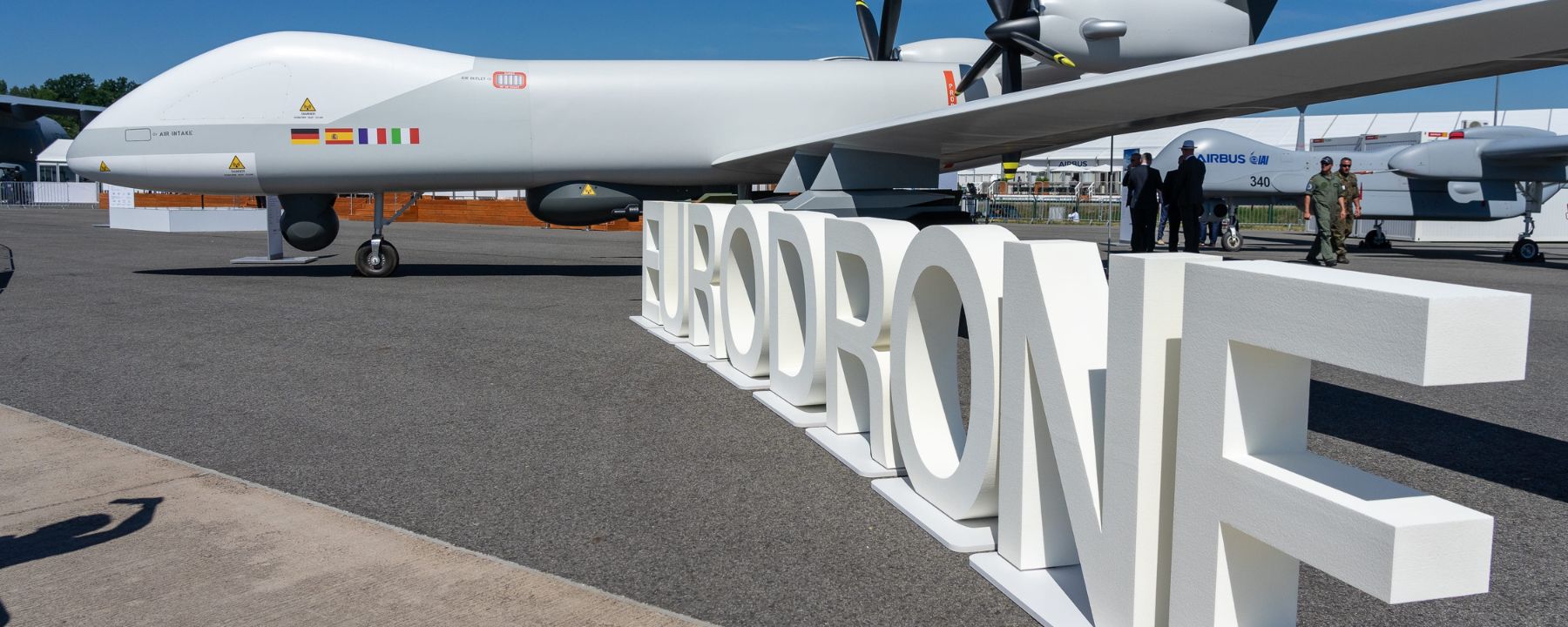Airbus Defence and Space in Spain has awarded Grupo Oesía the development, management and support of the cipher for the Flight Test Instrumentation of the Eurodrone. This new contract is added to others previously awarded (Cross Domain Solution, Voice Communications System, Airborne Encrytor, IT Hardware, Ground Mission Network) and makes Grupo Oesía the Spanish company with more contracts in the Eurodrone platform. The Eurodrone program, European MALE RPAS, carried out between Spain, France, Italy and Germany, under the direction of the international armaments agency, OCCAR (Organisation Conjointe de Coopération en Matière d’Armement), promotes European cooperation in the field of security and defense, a commitment to the development of multinational armament projects, giving the region greater strategic autonomy.
The development of the Eurodrone (unmanned aerial system designed to fly in non-segregated airspace), in addition to providing advanced capabilities for the safety and sovereignty of European airspace, makes possible the creation of quality jobs. The contract awarded to Grupo Oesía meets the requirements and specifications negotiated and aligned between the end users of the Eurodrone, the contracting authority (OCCAR) and the participating industrial partners (Dassault Aviation, Leonardo and Airbus Defence and Space in Spain and Germany).

In the words of Andrés García, Managing Director of the Aerospace sector of Grupo Oesía: “with this new contract for the development of the Eurodrone, Oesía Group, a leading company in the development and production of innovative aerospace technology and with a 100% Spanish seal, strengthens its role as a relevant actor in strategic projects within the European aeronautical panorama, as it is also confirmed by the participation of our company in the development of the Eurofighter, the military transport aircraft A400M and the FCAS, Future Combat Air System, a project finally agreed between the governments of Spain, France and Germany”.
Flight Test Instrumentation is installed only on developmental and experimental aircraft, and allows flight avionics, structural and environmental parameters to be acquired during flight tests, monitored in real time and subsequently analyzed. This information is transmitted by telemetry to the Flight Test Ground Station and can be recorded, both in flight and on the ground. The FTI encryptor makes it possible to encrypt this information, as some of the parameters to be transmitted are classified, and decrypt it at the ground station. The FTI Encrytor is based on the on-board encryptor, also developed by Grupo Oesía for the Eurodrone, with a security certification level up to NATO Secret.















